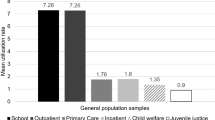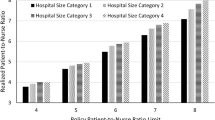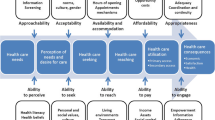Abstract
Objective
Recent literature on psychiatry resident outpatient clinic supervision is sparse. In designing outpatient supervision, training directors must balance optimization of patient care, education, and reimbursement. The authors sought to describe current practices for supervision within psychiatry resident outpatient clinics.
Methods
Directors of US psychiatric residency training programs were surveyed to examine methods used for supervision and billing in psychiatry resident outpatient clinics.
Results
Seventy of 183 (38 %) training directors responded. Most programs utilize live supervision for medication management visits, but psychotherapy supervision is more varied. Billing practices are variable among programs.
Conclusions
This report is intended to help training directors consider options for optimizing patient care and resident education in their outpatient clinics, while maintaining financial solvency. Ultimately, programs should have a way of ensuring all patient cases have some form of ongoing supervision, with possible modification based on training level, resident ability, patient acuity, and appointment type.
Similar content being viewed by others
References
Jaynes S, Charles E, Kass F, et al. Clinical supervision of the initial interview: effects on patient care. Am J Psychiatry. 1979;136(11):1454–7.
Noelle M. Self-report in supervision: positive and negative slants. Clin Superv. 2002;21:125–34.
Weerasekera P. The state of psychotherapy supervision: recommendations for future training. Int Rev Psychiatry. 2013;25(3):255–64.
Manring J, Greenberg RP, Gregory R, et al. Learning psychotherapy in the digital age. Psychotherapy. 2011;48(2):119–26.
CMS Manual System: Pub 100-04 Medicare Medicare claims processing; March 18, 2013; http://www.cms.gov/Regulations-and-Guidance/Guidance/Transmittals/downloads/R2303CP.pdf.
Medicare Carriers Manual: Part 3-Claims Process; April 22, 2013; https://www.cms.gov/Regulations-and-Guidance/Guidance/Transmittals/downloads/R1780B3.pdf.
Disclosure
Drs. Reardon and Williams report no disclosures. Dr. May reports an association with Visionary Mobile Corporation, which is a company that developed video software for residency training to the specifications of his own residency program. He is on the Advisory Board for the Corporation and has not received any form of remuneration at this time.
Author information
Authors and Affiliations
Corresponding author
Rights and permissions
About this article
Cite this article
Reardon, C., May, M. & Williams, K. Psychiatry Resident Outpatient Clinic Supervision: How Training Directors Are Balancing Patient Care, Education, and Reimbursement. Acad Psychiatry 38, 476–480 (2014). https://doi.org/10.1007/s40596-014-0091-1
Received:
Accepted:
Published:
Issue Date:
DOI: https://doi.org/10.1007/s40596-014-0091-1




